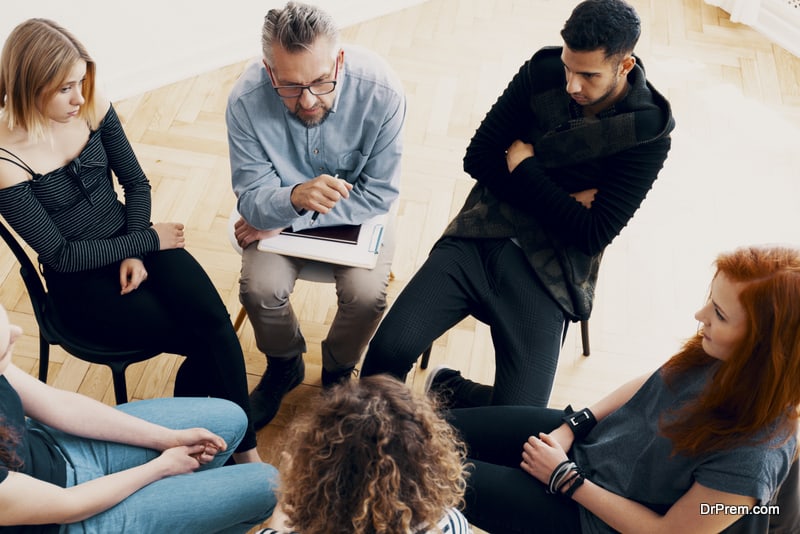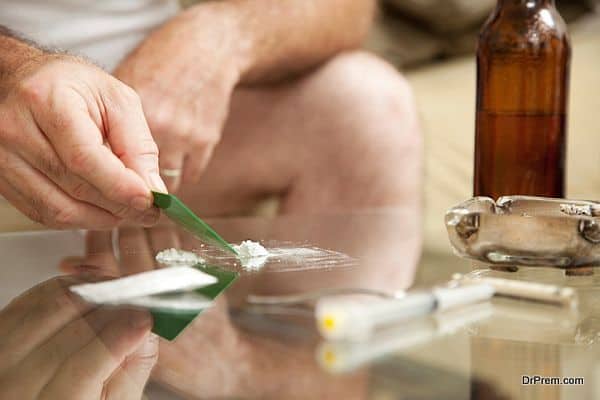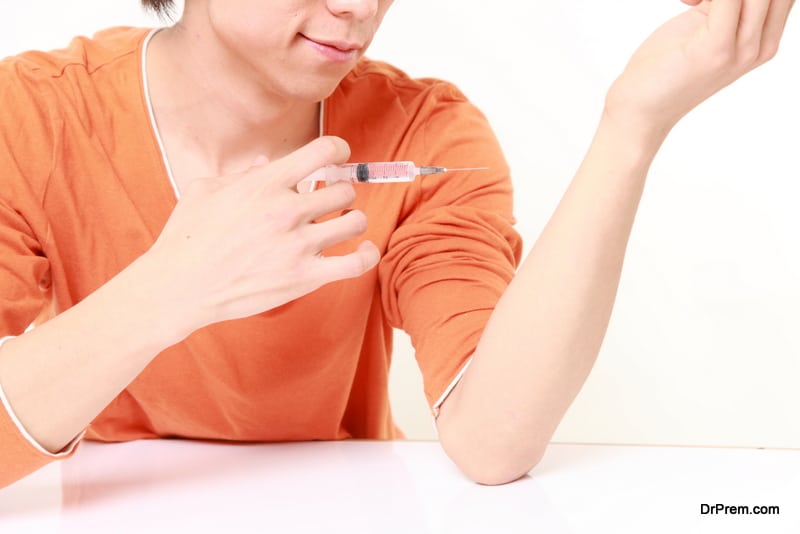Most people think they can stop taking drugs at any time. After all, stopping is easy, right?
However, the harsh truth is, that addiction is a powerful beast, and that it is way harder to overcome than previously anticipated. Quickly addiction becomes an all-or-nothing battle for them, an everyday struggle that dictates their life, leaving them either clean or totally dependent on drugs.
To help anyone struggling with addiction, we’ve created this list of seven useful tips to treat drug dependency.
1. Changing Personal Habits

What kind of person are you? Are you a couch potato, or do you work hard and play hard?
Studies from the UK have shown that people who go clubbing 4+ times per month are more likely to engage in drugs use compared to those that don’t (Source). In order to stay abstinent you need to actively avoid situations that can trigger your addiction and make impactful lifestyle changes.
Instead of hitting the club, focus on a more holistic approach that can help to set the path for a clean way of living – this can include a routine of:
- Regular exercise (2-5x per week)
- A clean diet rich in healthy fats, protein and low-GI carbohydrates
- A fixed sleep schedule
- Relaxing recreational activities, such as gardening, yoga, meditation, reading, writing etc.
Developing healthy habits is such a key factor when it comes to treating addiction.
2. Treating the Addiction
The second way to treat addiction is with professional treatments. While it is not always possible, the best results come from seeking professional help. This means that you should visit a behavioral health specialist regularly.
There are many types of specialists, but all of them have at least one thing in common: they’re specialists in addictive behavior.
Some of them can help you deal with personal issues, which may or may not be related to drug abuse. Others can help you develop skills and coping mechanisms that will help you avoid relapse during the recovery period.
3. Dialectal Behavioral Therapy (DBT):

DBT is a type of therapy that targets substance abuse and addiction. It was first created in the late 1980s by Marsha Linehan, who sought to offer an alternative treatment method for drug addicts. Based on the concept of mindfulness, this therapy teaches patients to be aware of their actions and guard against impulsive behavior.
The benefit of this type of treatment is that it is effective in treating substance abuse and improves the patients’ overall quality of life. The therapy works better when the patients use it in combination with other treatments, such as group and individual therapies.
4. Avoiding Temptation
The fourth step is avoiding Temptation. You need to make sure you don’t go back to places where you used to do drugs or hang out with old friends with whom you used to get high. These people are usually the ones that trigger your cravings. Go out of your way to avoid them or change your daily activities.
The step is vital because it gives you the chance to avoid triggers that can easily throw you into a relapse. Even if you slip up and find yourself in front of a person or place that triggers your addiction, you’ll be able to resist Temptation and will have the confidence to say “no” to drugs.
5. Get Help from Your Friends and Family

The fifth and final step is getting help from your friends and family members. This step is essential because it improves your ability to fight the disease. Most people who get help from friends and family members do so because they feel comfortable asking for it.
The help you get from your family and friends is priceless since they’re not just helping you in your recovery process, but they’re also helping you avoid making a relapse. They can also be a great support during the early stages of your addiction treatment.
Alternatively, you could consider joining a recovery and sober living community such as Transcend Recovery Community, which offers a healthy and supportive living environment for people that are struggling with addiction.
6. Overcoming addiction with the help of drugs
There are three types of drugs that can help you beat drug dependency, namely methadone, levo-alpha acetylmethadol (LAAM), and buprenorphine (Suboxone). These drugs are also known as opiates, meaning they’re used to treat opioid abuse and dependency. They relieve pain without causing intense euphoria or other side effects.
The process of overcoming addiction to opiates is called methadone maintenance. Methadone maintenance has been proven to be highly effective in treating opiate addiction. They’re also the only treatment that can be used after a period of detoxification and withdrawal. While the process of methadone is relatively easy, there are many downsides to it, such as high risks of overdose and overdose-related infections.
7. Limiting your use of drugs

Doctors also recommend a very simple method for treating addiction: to use drugs as little as possible to achieve the best results in your treatment. Addiction is not an irreversible process, and you can fully recover from it if you’re careful with your use of medications.
Introduction
However, the harsh truth is, that gambling addiction is a powerful beast, and that it is way harder to overcome than previously anticipated. Quickly addiction becomes an all-or-nothing battle for them, an everyday struggle that dictates their life, leaving them either clean or totally dependent on drugs. Therefore, you need gambling addiction help to assist you in becoming sober.
Conclusion
Although there’s still no cure for addiction, changes in lifestyle can help prevent relapse by giving a person a chance to successfully recover from drug dependency. In the end, there is no “one size fits all” solution to addiction.
Article Submitted By Community Writer




